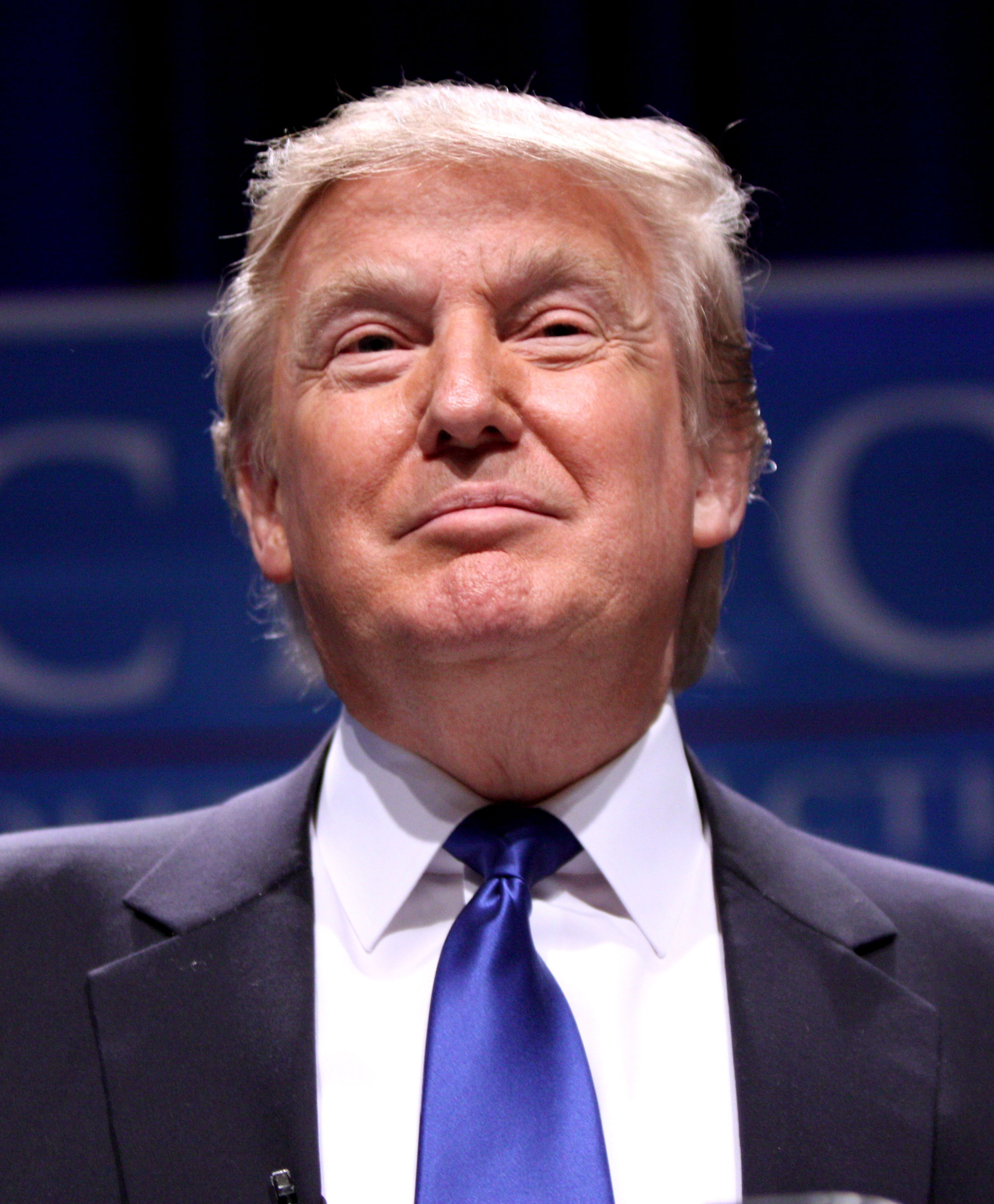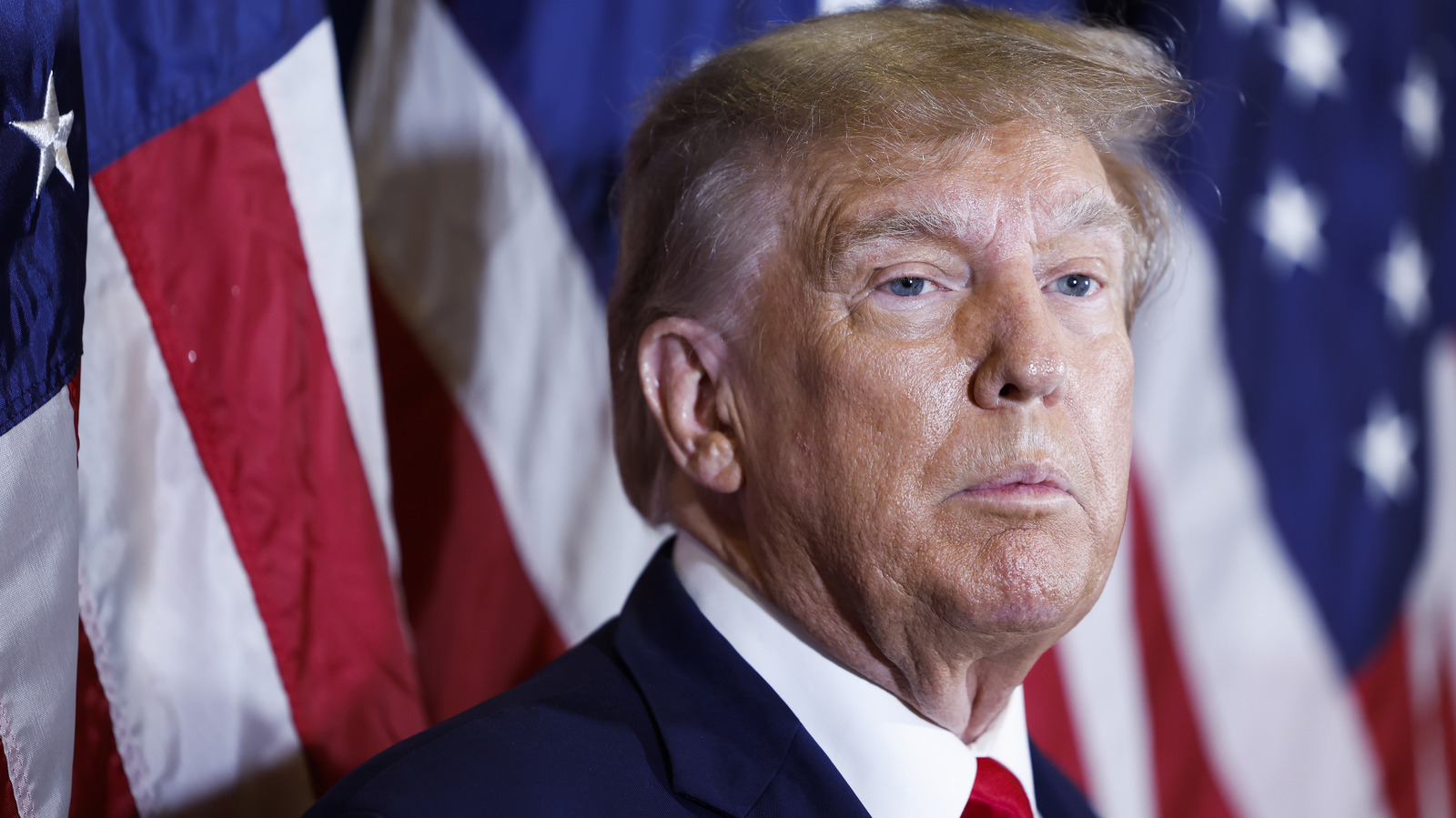"Donald Trump, If You Can Hear Me": The Viral Cry For Help
The phrase "Donald Trump, if you can hear me" has echoed across social media platforms, transforming from a desperate plea into a widely recognized meme and a symbol of fervent political loyalty. Its origins are rooted in a dramatic real-life incident, capturing a moment of intense belief and vulnerability that resonated deeply within various online communities. This singular utterance encapsulates a complex interplay of political devotion, perceived injustice, and the raw emotion of an individual in distress, making it far more than just a fleeting internet trend.
This article delves into the genesis of this unforgettable line, exploring the precise circumstances that led to its utterance, its subsequent evolution into a cultural phenomenon, and the broader implications it holds for understanding contemporary political discourse and supporter dynamics. We will dissect the psychological underpinnings of such a plea, examine its diverse interpretations across the digital landscape, and reflect on its enduring legacy in the ongoing narrative of American politics.
Table of Contents
- The Genesis of a Viral Slogan: A Moment of Desperation
- Donald Trump: A Brief Political Context for the Plea
- From Raw Emotion to Digital Phenomenon: The Meme's Journey
- Beyond the Original: Other Instances of the "Save Us" Cry
- The Psychology Behind the Plea: Why "Save Me, Donald Trump"?
- The Cultural Impact: Humor, Mockery, and Genuine Belief
- The Enduring Legacy of a Viral Moment
- Navigating the Digital Echo Chamber: Understanding Online Political Discourse
The Genesis of a Viral Slogan: A Moment of Desperation
The iconic phrase "Donald Trump, if you can hear me, please save me" originated from a highly charged incident in 2020, captured live on Instagram. A staunch supporter of then-President Donald Trump found himself in a precarious situation, pulled over by police officers. As the officers repeatedly asked him to step out of his vehicle, the man, seemingly overwhelmed and perhaps fearful, refused to comply. Instead, with his hands reportedly in the air and his head bowed, he began to livestream the encounter, uttering the now-famous plea. "Please Donald Trump, Donald Trump if you can hear me please save me, I’m asking you Donald Trump please," he implored, over and over again. This raw, unscripted moment of vulnerability and desperate appeal immediately struck a chord online. It wasn't just a simple traffic stop; it was a public display of an individual's profound belief in a political figure as a personal savior, even in the face of immediate legal authority. The sheer intensity of his plea, directed not at the officers but at a distant political leader, highlighted a unique aspect of political devotion that many found both perplexing and compelling. The video quickly circulated, becoming a stark illustration of the deep emotional connection some supporters felt towards the former president, viewing him as their ultimate protector.Donald Trump: A Brief Political Context for the Plea
To truly grasp the weight of the "Donald Trump, if you can hear me" plea, it's essential to understand the political landscape and the unique bond Donald Trump cultivated with a segment of the American populace. His presidency, from 2017 to 2021, was marked by an unprecedented level of direct engagement with his base, often bypassing traditional media channels in favor of social media and large rallies. This approach fostered an intensely personal connection, leading many supporters to view him not just as a politician, but as a champion, a fighter, and even a savior figure against what they perceived as a corrupt establishment or external threats.Rise to Power and Populist Appeal
Donald Trump's ascent to the presidency in 2016 was largely fueled by a populist appeal that resonated with voters who felt marginalized, forgotten, or unheard by the political elite. His "Make America Great Again" (MAGA) slogan became a rallying cry for those disillusioned with the status quo. He presented himself as an outsider, a successful businessman unafraid to challenge conventional norms and speak his mind, which endeared him to a base that craved authenticity and disruption. For many, he represented a powerful voice against perceived injustices and a promise to restore a sense of national pride and economic opportunity. This perception laid the groundwork for the deep trust and reliance that would later manifest in moments of crisis.The Cult of Personality and Unwavering Loyalty
Throughout his political career, Trump meticulously cultivated a powerful cult of personality. He fostered a sense of shared identity and grievance with his supporters, often portraying himself as the only one capable of solving their problems and protecting them from various "enemies" – be it the mainstream media, political opponents, or globalist forces. This narrative created an unwavering loyalty, where criticism of Trump was often perceived as an attack on his supporters themselves. In this environment, it's not difficult to see how an individual facing a stressful situation might instinctively turn to the figure they believe possesses the ultimate power and willingness to intervene on their behalf, embodying the very essence of "Please save me, Donald Trump."From Raw Emotion to Digital Phenomenon: The Meme's Journey
The journey of "Donald Trump, if you can hear me" from a moment of raw, unedited human emotion to a pervasive digital phenomenon is a testament to the power of internet culture. Almost immediately after the original livestream of the man's arrest went viral, the distinct audio clip of his desperate plea began to circulate independently. Creators on platforms like TikTok and YouTube quickly isolated the sound, transforming it into a versatile meme template. The sound effect, attributed to creators like art_23, gained immense traction, being played thousands of times and incorporated into countless short videos. The meme's adaptability was key to its widespread adoption. While the original context was serious and politically charged, the sound clip was often repurposed for comedic effect. Users would overlay the audio onto unrelated, often absurd, situations where someone might be in a minor predicament and humorously call out to "Donald Trump" for help. This detachment from its initial gravity allowed the phrase to transcend its political origins, becoming a general expression of mock desperation or exaggerated helplessness. The sheer number of times the audio clip has been played and shared across various platforms underscores its undeniable impact on internet lexicon and its role in shaping contemporary online humor. It demonstrates how quickly a moment of genuine distress can be recontextualized and assimilated into the broader tapestry of digital communication.Beyond the Original: Other Instances of the "Save Us" Cry
While the 2020 livestream incident provided the definitive origin for the "Donald Trump, if you can hear me" meme, it wasn't an isolated instance of supporters expressing a similar sentiment of reliance or desperation towards the former president. Another notable example that surfaced online shows a woman crying and pleading with former U.S. President Donald Trump to "save us." This particular video dates back to at least January 2021, a period marked by significant political turmoil and heightened emotions following the 2020 election and the events of January 6th. It's crucial to distinguish between these instances and their specific contexts. The 2020 livestream was a personal plea during an arrest, while the 2021 video appears to be a more generalized, yet equally fervent, appeal for collective salvation. These separate occurrences, though distinct in their immediate circumstances, collectively highlight a recurring theme: a segment of Trump's base viewed him as a figure of ultimate authority and intervention, capable of delivering them from perceived threats or injustices. The repetition of such desperate pleas, whether personal or collective, underscores the profound sense of reliance and hope that many placed in him, solidifying the narrative of Trump as a potential savior in times of crisis for his most ardent followers.The Psychology Behind the Plea: Why "Save Me, Donald Trump"?
The act of pleading with a political figure, particularly in a moment of personal crisis, reveals fascinating insights into human psychology and the dynamics of political allegiance. Why would an individual, facing immediate law enforcement, turn their plea to a distant president rather than engaging with the situation at hand? The answer lies in a complex interplay of deeply held beliefs, emotional investment, and the perception of authority.Political Idolatry and Perceived Omnipotence
For many fervent supporters, political figures can transcend their role as mere representatives and become objects of intense admiration, even idolatry. In such cases, the leader is perceived as possessing almost omnipotent power and an unwavering will to protect their followers. This isn't just about policy agreement; it's about a fundamental belief in the leader's ability to defy conventional limits and intervene on a personal level. When faced with a perceived threat or injustice, the mind, under duress, might instinctively turn to the figure who has been consistently portrayed, and believed to be, an ultimate protector. "Donald Trump, if you can hear me" becomes a direct appeal to this perceived ultimate authority, a belief that he alone holds the key to resolution or salvation.A Cry Against Perceived Injustice
Beyond idolatry, the plea often stems from a deep-seated feeling of being targeted or experiencing injustice. For many who align with populist movements, there's a strong narrative of being oppressed by "the system," "the establishment," or "the deep state." In this worldview, law enforcement, government institutions, or even societal norms can be seen as instruments of this oppressive force. When confronted by authority, an individual steeped in this narrative might not see the police as neutral enforcers of law but as agents of the very system they feel is against them. In such a moment, turning to a leader who has consistently positioned himself as an anti-establishment figure and a defender of the common person becomes a logical, albeit desperate, act. The cry of "Please save me, please get these people away from me" is a direct articulation of this feeling of being unfairly targeted and a desperate hope that their chosen champion will intervene.The Cultural Impact: Humor, Mockery, and Genuine Belief
The phrase "Donald Trump, if you can hear me" has carved out a unique space in contemporary culture, embodying a fascinating duality: it is simultaneously a source of genuine political commentary and a widely adopted element of internet humor. This dual nature reflects the deeply polarized landscape of modern society and the varied ways in which individuals process and react to politically charged content. On one hand, for those who do not share the fervent political convictions of the original speaker, the phrase often serves as a source of mockery and satire. The image of someone praying to a political leader instead of complying with law enforcement is seen as absurd, a caricature of extreme political devotion. Memes and parodies using the sound clip frequently highlight this perceived absurdity, eliciting laughter and reinforcing existing political divides. This comedic interpretation allows individuals to express their political leanings or simply engage in lighthearted online banter without necessarily delving into the original serious context. On the other hand, for supporters of Donald Trump, the phrase can evoke a very different response. While some might appreciate the humor in its meme form, for many, it resonates as a genuine expression of loyalty, desperation, and belief. They might see the original incident not as an act of folly, but as a poignant example of a true believer turning to their leader in a moment of dire need. This perspective views the plea as a testament to the powerful bond between Trump and his base, a bond that transcends conventional political affiliations and borders on the spiritual for some. The phrase, therefore, becomes a shorthand for understanding the intensity of this political devotion, a symbol that can be either revered or ridiculed, depending on the observer's political alignment and personal interpretation. This stark contrast in reception underscores how a single viral moment can be interpreted through vastly different lenses, reflecting the complex tapestry of public opinion.The Enduring Legacy of a Viral Moment
The phrase "Donald Trump, if you can hear me" has cemented its place not just as a fleeting internet trend but as a memorable cultural artifact, reflecting a unique moment in American political history. Its legacy extends beyond the initial virality, continuing to resurface in various forms, particularly as political discourse evolves and new election cycles approach. The fact that an audio clip created in 2020 (or even November 2024, as one data point suggests, indicating its continued relevance and re-creation) can still be played thousands of times and used in new contexts speaks volumes about its lasting impact. The phrase has become a shorthand for extreme political loyalty, often invoked to describe situations where individuals exhibit unwavering faith in a leader, even in the face of personal adversity or legal challenges. It symbolizes the idea of a political figure as a personal savior, a concept that resonates deeply with a specific segment of the population. Furthermore, its continued presence in online discussions, memes, and even merchandise (like "Trump gifts" or "I support Donald Trump shirt" designs that subtly reference this fervent support) indicates its integration into the broader narrative surrounding the former president and his base. As the 2024 election cycle progresses, it's highly probable that this iconic plea will continue to echo, serving as a powerful reminder of the intense emotional bonds forged between political leaders and their most devoted followers.Navigating the Digital Echo Chamber: Understanding Online Political Discourse
The rapid proliferation and multifaceted interpretation of "Donald Trump, if you can hear me" serve as a compelling case study for understanding the dynamics of online political discourse. Social media platforms, with their instantaneous sharing capabilities and algorithmic amplification, act as powerful echo chambers, shaping how such viral moments are perceived and disseminated. When a raw, emotionally charged video like the original livestream emerges, algorithms quickly identify its engagement potential, pushing it to wider audiences. This amplification, however, doesn't come with context or nuance. Users within different online communities often interpret the same content through their pre-existing political lenses. For some, it's a genuine expression of faith; for others, it's fodder for satire. This divergence highlights the challenge of discerning genuine pleas from satirical content in a highly fragmented digital landscape. The phrase's journey from a desperate cry to a widely recognized meme underscores how easily emotional content can be decontextualized and repurposed, losing its original gravity as it gains comedic or symbolic value. Understanding these mechanisms is crucial for anyone navigating the complexities of online political conversations, where a single phrase can embody a spectrum of meanings and provoke vastly different reactions depending on the audience and their digital environment. It reminds us that what starts as a personal plea can quickly become a shared cultural reference, reflecting the diverse and often contradictory narratives that define our digital age.Conclusion
The phrase "Donald Trump, if you can hear me" is far more than just a viral soundbite; it is a profound cultural artifact that encapsulates the fervent political loyalties, deep-seated emotions, and complex dynamics of contemporary American society. From its origins in a desperate plea during a 2020 livestreamed arrest, it quickly transformed into a widely recognized meme, resonating across various online platforms. This journey highlights the powerful bond between a political leader and his most ardent supporters, who, in moments of crisis, turn to him as a perceived savior and protector against what they view as an unjust world. Whether interpreted as a genuine cry for help, a symbol of unwavering devotion, or a subject of satire, the phrase continues to echo in our digital landscape, reflecting the diverse ways we engage with political figures and events. It serves as a potent reminder of the emotional intensity embedded within political discourse and the unique ways in which personal moments can become public phenomena. We invite you to share your thoughts on this fascinating cultural phenomenon in the comments below. How do you interpret the phrase "Donald Trump, if you can hear me"? Has its meaning evolved for you over time? Feel free to engage in a respectful discussion, and consider exploring our other articles on political trends and internet culture to deepen your understanding of these complex topics.- Christine Whigham
- Choi Woo Shik Relationships
- Who Is Whitney Cummings Dating
- Adam Brody Date
- Mikayla Demaiter Kurtis Gabriel

File:Donald Trump by Gage Skidmore.jpg - Wikipedia, the free encyclopedia

Donald Duck PNG

Donald Trump Makes History As First President To Be Arrested After